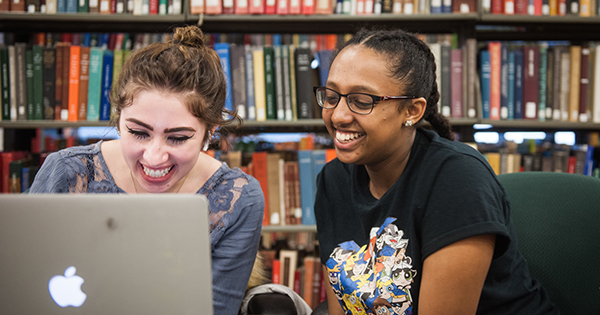Health
Five Essential Tips to Support Friends’ Mental Health in College

The college experience presents a unique blend of excitement and stress, often overwhelming students as they navigate academics, jobs, and social activities. During Mental Health Awareness Month, it is essential to highlight ways students can support friends who may be experiencing mental health challenges. Here are five practical tips for offering meaningful support.
Be Present and Accessible
Checking in on a friend does not require grand gestures. Simple acts, such as accompanying them on errands or going for a walk, can significantly improve their day. Mental health struggles can be isolating, and just being there for a friend can provide comfort.
When a friend is ready to talk, it is crucial to create a safe space for conversation. Mental health discussions can be sensitive and require trust. Choose the right time and location, ensuring privacy and confidentiality. Respect their boundaries by allowing them to express their feelings without pressure to respond or “fix” the situation. Listening without judgment can often be the most valuable form of support.
Encourage Professional Help When Needed
Recognizing when a friend may need more support is vital. If their mental health concerns pose risks to themselves or others, it is essential to encourage them to seek professional help. This may involve involving a trusted adult, a mental health professional, or campus resources.
Boston University (BU) provides a variety of free resources for students. The Student Health Services’ Behavioral Medicine Center offers assistance and can be contacted at 617-353-3569 for TeleHealth appointments. Additionally, services such as Peer Groups, Peer Listening, and Counseling focus on topics like Managing Anxiety and Mindful Meditation.
BU’s Center for Anxiety and Related Disorders is known globally for its clinical and research expertise. This center offers both individual and group therapy options, helping students manage anxiety, mood, and related issues.
Participate in Campus Support Groups
BU hosts various peer support groups designed to address specific needs and foster community among students. These groups will begin the week of September 15, 2025, and run weekly through December 12, 2025.
Among the offerings is “BU Roots,” which welcomes new undergraduate students seeking a supportive environment as they adjust to college life. Another group, “Building a Stronger You,” is aimed at students managing intense emotions, providing them with skills and a platform to share their experiences.
Creative expression is encouraged through the “Crafts & Connection” group, where students can engage in crafting activities to relieve stress. For first-generation college students, a dedicated group within the Newbury Center aims to foster community and share resources.
Graduate students are also catered to with a confidential support group that addresses the unique challenges faced in advanced studies. The “Grief Group” provides a safe space for those who have lost loved ones, allowing participants to share their feelings while processing their grief collectively. Additionally, the “LGBTQ+ Support Group” offers a welcoming environment for discussions about the diverse experiences related to being lesbian, gay, bisexual, transgender, queer, or questioning.
Maintaining mental health is crucial for success in college. BU’s Counseling Services is committed to supporting students through challenges, whether related to academic pressure, mood swings, or social difficulties.
Students can benefit from expert care and the latest research-driven treatment options available at the Center for Anxiety and Related Disorders. Participation in ongoing studies offers additional opportunities to enhance understanding of anxiety and related conditions.
Supporting a friend’s mental health requires sensitivity, understanding, and sometimes, the encouragement to seek professional help. By utilizing available resources and fostering an open environment for discussion, students can significantly impact each other’s mental well-being during their college journey.
-

 Business1 week ago
Business1 week agoIconic Sand Dollar Social Club Listed for $3 Million in Folly Beach
-

 Politics1 week ago
Politics1 week agoAfghan Refugee Detained by ICE After Asylum Hearing in New York
-

 Health1 week ago
Health1 week agoPeptilogics Secures $78 Million to Combat Prosthetic Joint Infections
-

 Lifestyle1 week ago
Lifestyle1 week agoJump for Good: San Clemente Pier Fundraiser Allows Legal Leaps
-

 Science1 week ago
Science1 week agoResearchers Achieve Fastest Genome Sequencing in Under Four Hours
-

 Health1 week ago
Health1 week agoResearcher Uncovers Zika Virus Pathway to Placenta Using Nanotubes
-

 World1 week ago
World1 week agoUS Passport Ranks Drop Out of Top 10 for First Time Ever
-

 Science1 week ago
Science1 week agoMars Observed: Detailed Imaging Reveals Dust Avalanche Dynamics
-

 Entertainment1 week ago
Entertainment1 week agoJennifer Lopez Addresses A-Rod Split in Candid Interview
-

 Business1 week ago
Business1 week agoSan Jose High-Rise Faces Foreclosure Over $182.5 Million Loan
-

 Top Stories7 days ago
Top Stories7 days agoChicago Symphony Orchestra Dazzles with Berlioz Under Mäkelä
-

 World1 week ago
World1 week agoRegional Pilots’ Salaries Surge to Six Figures in 2025









